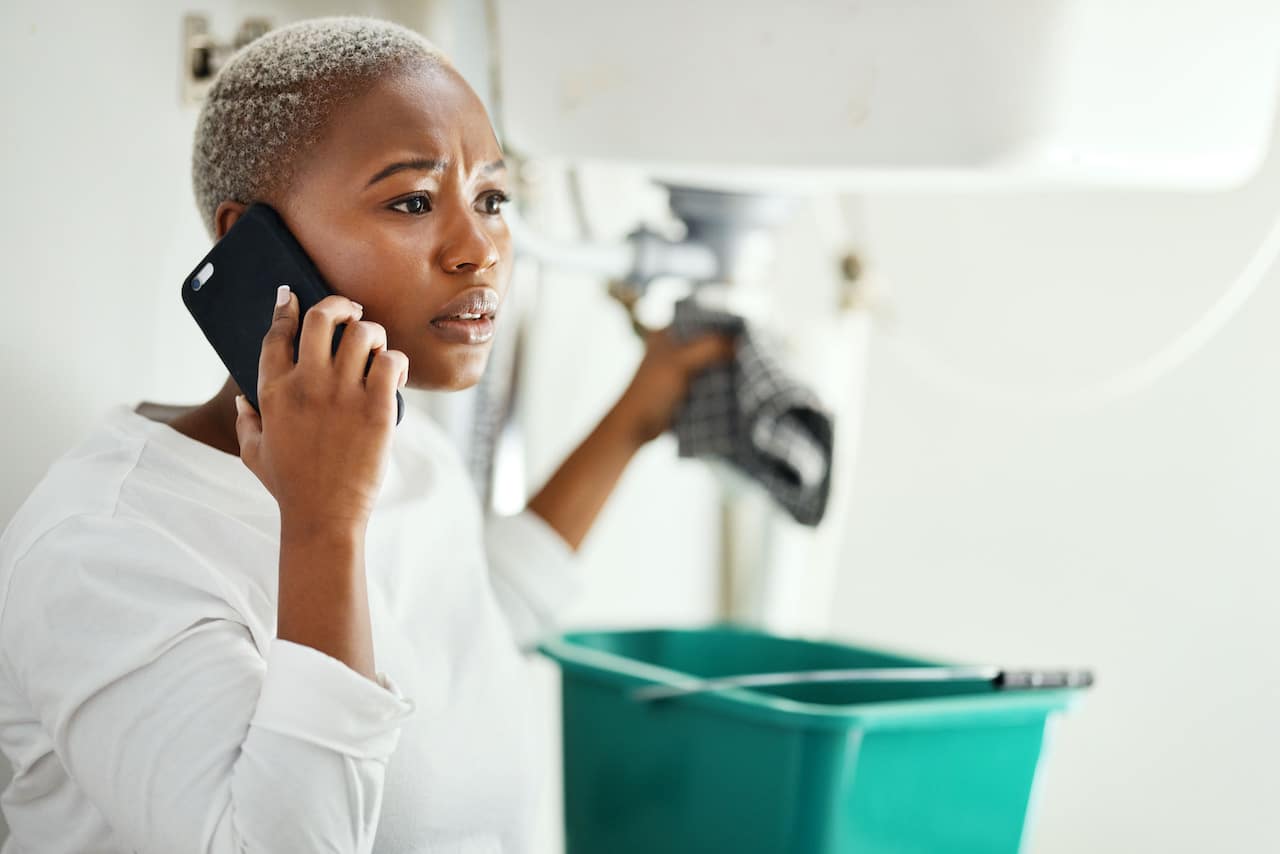Homeowners insurance can cover various plumbing issues. But not all problems qualify for coverage.
Knowing which issues are covered can save you money and stress. Plumbing problems can cause significant damage to your home. A burst pipe can flood rooms, ruin furniture, and lead to mold. Understanding your insurance policy is crucial. It helps you know what to expect when disaster strikes.
This blog will explore the plumbing issues typically covered by homeowners insurance. We will also discuss scenarios where coverage may be limited or denied. Whether you’re a new homeowner or just reviewing your policy, this information is vital. It ensures you’re prepared for any unexpected plumbing emergencies. Stay informed and protect your investment.

Credit: www.plymouthrock.com
Introduction To Homeowners Insurance
Owning a home is a dream for many. But with that dream comes the responsibility of maintaining it. One key aspect of home maintenance is dealing with plumbing issues. And this is where homeowners insurance steps in. But what exactly is homeowners insurance? And why is it so important? Let’s dive into the basics.
Basics Of Homeowners Insurance
Homeowners insurance is a policy that protects your home and belongings. It covers damages from certain risks like fires, storms, and theft. Most policies also include liability coverage. This means if someone gets hurt on your property, the insurance can help cover the costs. Think of it as a safety net for your home.
Here are some common things covered by homeowners insurance:
- Damage to the structure of your home
- Personal property inside your home
- Liability for accidents that happen on your property
Sounds simple, right? Well, not quite. There are specific details and exclusions to be aware of. For example, not all water damage is covered. This brings us to our next point.
Why It Matters
Understanding homeowners insurance is crucial. Without it, you could face huge repair bills. Imagine your pipes burst, flooding your home. If you have insurance, you might be covered. If not, you’re on your own. And trust me, plumbing repairs can be costly!
Here’s a quick example:
Last winter, my neighbor’s pipes froze and burst. The damage was extensive. Thankfully, their insurance covered most of the repair costs. Without it, they would have spent thousands out of pocket.
This story highlights the importance of knowing what your policy covers. It can save you money and stress in the long run.
In the next sections of this blog, we’ll look at specific plumbing issues covered by homeowners insurance. Stay tuned!
Common Plumbing Issues
Common plumbing issues can affect many homeowners. These problems can cause stress and damage. Knowing what your insurance covers is important. This section will discuss common plumbing issues. These include leaking pipes, clogged drains, and water heater failures.
Leaking Pipes
Leaking pipes are a frequent issue. They can cause water damage to your home. This damage can be costly to repair. Insurers may cover sudden leaks. This is when the leak happens without warning. Regular wear and tear usually isn’t covered. Check your policy for details.
Clogged Drains
Clogged drains can disrupt daily life. They can cause water backup. This can damage floors and walls. Some insurance policies cover sudden clogs. Coverage might depend on the cause. Regular maintenance can prevent clogs. Insurers may not cover issues from poor upkeep.
Water Heater Failures
Water heater failures can lead to cold showers. They can also cause leaks and flooding. Some policies cover sudden water heater failures. Coverage might exclude old or poorly maintained units. Check your policy for specific terms. Regular checks can help avoid problems.
Plumbing Issues Typically Covered
Homeowners insurance can be a lifesaver when dealing with unexpected plumbing issues. Different policies cover various types of damage. Understanding what is typically covered can save you from future headaches.
Sudden And Accidental Damage
Homeowners insurance often covers sudden and accidental plumbing damage. This includes unexpected leaks or breaks. If a pipe breaks without warning, the damage it causes is usually covered. Routine wear and tear is not included.
Burst Pipes
Burst pipes can cause significant damage. Insurance policies typically cover water damage from burst pipes. This includes damage to walls, floors, and personal belongings. Insurers may ask for proof that the pipes were properly maintained.
Overflow And Backup
Plumbing overflow and backups can lead to water damage. Many policies cover these incidents. This includes damage from overflowing sinks, bathtubs, or toilets. Some policies also cover sewer backups. Check your policy for specific details.

Credit: insurify.com
Plumbing Issues Not Typically Covered
When it comes to homeowners insurance, it’s crucial to understand what is and isn’t covered, especially regarding plumbing issues. While your policy might help with sudden leaks or broken pipes, not all plumbing problems will get the same treatment. Let’s dive into the common plumbing issues that typically fall outside the coverage of most homeowners insurance plans.
Gradual Damage
Insurance companies are not big fans of slow, creeping issues. If a pipe slowly leaks over time, causing mold or structural damage, this is usually classified as gradual damage. Because this type of damage happens over weeks, months, or even years, it’s considered preventable with proper maintenance. So, if you discover an old, rusty pipe that’s been leaking for ages, don’t expect your insurance to foot the bill.
Poor Maintenance
Think of your plumbing system like a car; it needs regular check-ups. Poor maintenance is a big no-no for insurance companies. If you ignore small issues—like a minor leak or a clog—these can evolve into major problems. And when they do, your insurer might say, “Sorry, that’s on you!” Regular inspections and prompt repairs are key to keeping your plumbing and your policy happy.
Wear And Tear
Everything has a lifespan, including your plumbing. Insurance policies generally do not cover wear and tear. Over time, pipes corrode, fixtures break, and systems fail. This natural aging process is expected, and homeowners are responsible for the upkeep. So, if your 20-year-old water heater gives up the ghost, it’s not likely to be covered.
So, there you have it! While homeowners insurance can be a lifesaver for sudden, unforeseen plumbing disasters, it won’t cover everything. Regular maintenance and timely repairs are your best defense against those out-of-pocket expenses. Stay vigilant, and keep your plumbing in tip-top shape!
Filing A Claim For Plumbing Issues
Filing a claim for plumbing issues can be a complex process. Homeowners often feel stressed when dealing with water damage. But understanding the steps to file a claim can make things easier. This guide will walk you through the necessary steps.
Documenting The Damage
Start by documenting the damage. Take clear photos of the affected areas. Make sure to capture all angles. Write detailed notes describing the issues. Include the date and time of the incident. This evidence will be crucial for your claim.
Contacting Your Insurance Provider
Next, contact your insurance provider. Inform them about the plumbing issue. Provide them with all the details you have documented. Ask about the specific coverage for such incidents. They will guide you on the next steps.
Meeting An Adjuster
An adjuster will visit your home to assess the damage. Be available during the visit. Show them the affected areas. Provide the photos and notes you have taken. The adjuster’s report will influence the claim decision.
Preventive Measures To Reduce Plumbing Issues
Preventive measures can significantly reduce the risk of plumbing issues. Regular care and monitoring help maintain the health of your plumbing system. Taking proactive steps can save you from costly repairs and potential water damage.
Regular Maintenance
Regular maintenance ensures your plumbing system runs smoothly. Check for leaks and drips often. Fix small issues before they become big problems. Clean your drains to prevent clogs. Maintain your water heater by flushing it annually. This removes sediment build-up.
Installing Water Sensors
Water sensors can detect leaks early. Place them in areas prone to leaks, like under sinks and near appliances. These devices alert you to potential problems. You can act quickly and avoid severe water damage.
Seasonal Inspections
Seasonal inspections help identify problems that arise with weather changes. In winter, check for frozen pipes. In spring, inspect for leaks due to thawing. Summer and fall can bring different challenges. Regular seasonal checks keep your plumbing system in top condition.
Tips For Choosing The Right Homeowners Insurance
Choosing the right homeowners insurance is like picking the perfect pair of shoes. You want something that fits well, offers good protection, and doesn’t break the bank. When it comes to plumbing issues, not all policies are created equal. So, how do you make sure you’re covered when things go south? Let’s dive into some handy tips to help you choose the best homeowners insurance for your needs.
Comparing Policies
First things first, don’t go for the first policy you find. Just like you wouldn’t buy the first car you see, you should compare different insurance policies. Look at:
- Premiums: How much will you pay each month?
- Deductibles: What’s the amount you have to pay before the insurance kicks in?
- Coverage: Does it cover plumbing issues? How about other potential problems?
By comparing policies, you can find the one that gives you the most bang for your buck.
Understanding Coverage Limits
Imagine you have a leak in your basement, and you find out your policy only covers up to $1,000 in damages. Ouch! Understanding coverage limits is crucial. Here’s what you need to know:
- Check the maximum payout for plumbing issues.
- See if there are separate limits for different types of damage (e.g., water damage, mold).
- Know what’s excluded. Some policies might not cover older plumbing systems.
If the limits are too low, you might end up paying a lot out of pocket. Make sure your policy covers enough to give you peace of mind.
Reading The Fine Print
We’ve all been there. You get a new gadget, and you skip the manual. But with insurance, it’s important to read the fine print. Here’s why:
| Aspect | Details |
|---|---|
| Exclusions | What’s not covered? Pay attention to the exclusions section. |
| Conditions | Are there specific conditions you need to meet to be covered? |
| Claims Process | How do you file a claim? Is it straightforward or a hassle? |
Reading the fine print ensures there are no surprises when you need to use your insurance. It’s a bit like checking the weather before a big trip – you want to be prepared.
In conclusion, choosing the right homeowners insurance involves a bit of homework. But with these tips, you’ll be well on your way to finding a policy that keeps your home (and your wallet) safe. Happy hunting!

Credit: bethanyins.com
Frequently Asked Questions
What Does Homeowners Insurance Cover Plumbing?
Homeowners insurance typically covers plumbing issues caused by sudden, accidental damage. Routine maintenance and wear and tear are not covered.
What Type Of Plumbing Is Not Covered By Insurance?
Insurance typically doesn’t cover plumbing issues caused by wear and tear, poor maintenance, or gradual leaks. Ensure regular upkeep.
What Type Of Water Damage Is Not Covered By Insurance?
Insurance typically does not cover gradual water damage, such as leaks, seepage, or poor maintenance. Flood damage from natural disasters often requires separate flood insurance.
Will Insurance Pay To Repipe A House?
Insurance may cover repiping if damage is due to a sudden, accidental event. Routine wear and tear usually isn’t covered. Check your policy details for specifics.
Conclusion
Understanding what plumbing issues your homeowner’s insurance covers is crucial. It helps you prepare for unexpected repairs. Always review your policy details carefully. Speak with your insurance agent to clarify coverage. This ensures you know what to expect. Proper maintenance can prevent many common plumbing problems.
Stay informed and protect your home efficiently. This knowledge brings peace of mind and financial security.

